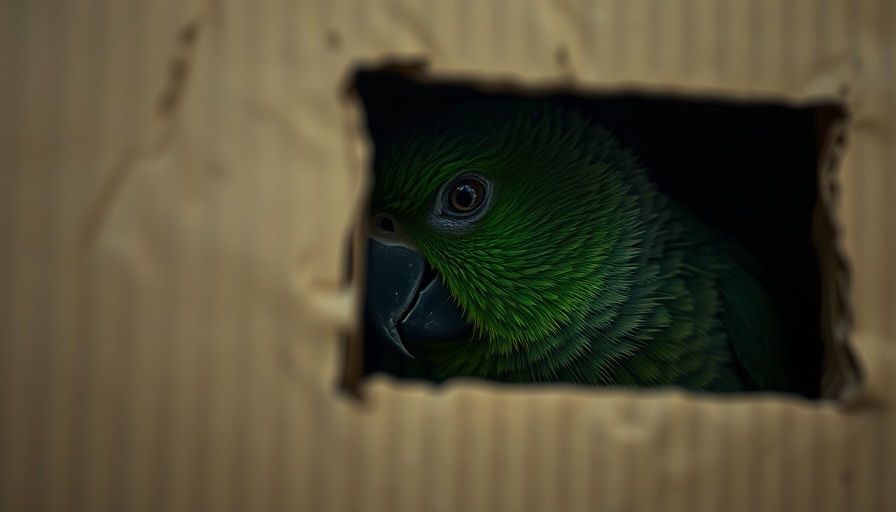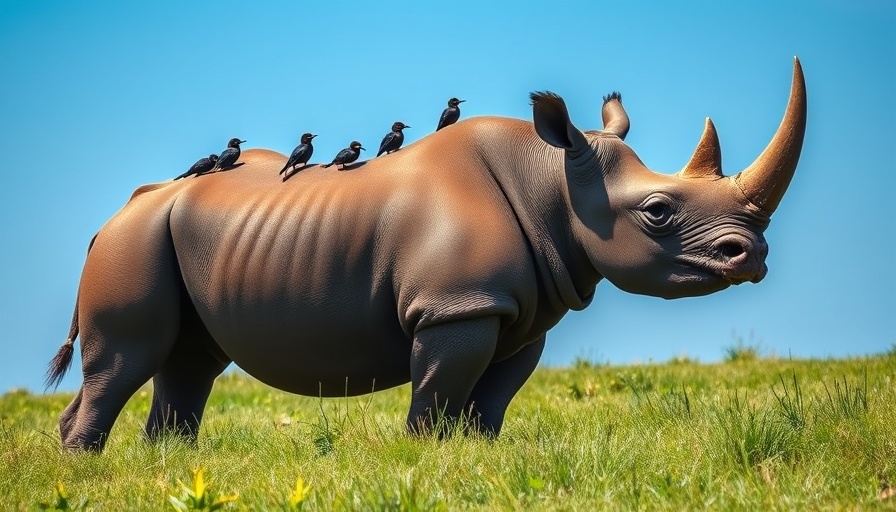
Caught in the Act: A Bold Attempt at Bird Trafficking
In a shocking incident that highlights the ongoing struggle against wildlife smuggling, a California man was apprehended while attempting to transport seven exotic, protected birds in a cardboard box disguised as a vodka shipment. Juandaniel Medina, 24, hailing from Lindsay, California, had crossed the border from Mexico when U.S. Customs and Border Protection officials discovered the birds nestled within a SKYY vodka box in his car. This unusual cover-up strategy raises questions about the lengths to which individuals will go to engage in illegal activities, particularly in the lucrative and dangerous world of bird trafficking.
The Legal Ramifications of Wildlife Trafficking
Medina's case underscores the severe legal implications of smuggling protected species. He now faces charges of illegally trafficking Amazon parrots, which fall under the Convention on International Trade in Endangered Species of Wild Flora and Fauna (CITES). This important treaty was established to safeguard the world's flora and fauna, ensuring that commerce does not adversely affect the survival of species in the wild. Prosecutors have highlighted that Medina's arrest is not an isolated incident; he is the third person charged with similar offenses in a few weeks, indicating a troubling trend of wildlife trafficking through Southern California.
The Impact of Smuggling on Wildlife Populations
A startling statistic reveals that wildlife populations have seen a 73% decline over the last 50 years due to human activities, including habitat loss and illegal trafficking. Species like the Amazon parrot, with their vibrant colors and intelligent behavior, are at risk not only from illegal capture but also from the environmental pressures that threaten their natural habitats. By functioning outside of legal safeguards, traffickers prevent officials from examining these birds for health issues, exposing them—and potentially humans—to diseases like Avian influenza. Such smuggling operations endanger both wildlife and public health, showing that bird smuggling is, indeed, never a victimless crime.
Consequences Beyond the Courtroom
U.S. Attorney Adam Gordon emphasized the broader implications of bird smuggling, stating, "These animals suffer, and the consequences to public health and the environment can be catastrophic." This incident serves as a reminder that wildlife trafficking extends beyond legal ramifications—it represents a broader crisis in biodiversity depletion that locals in the high desert and beyond need to be aware of. Understanding the connection between such illegal activities and the natural world around us can empower communities to become advocates for conservation.
What Can You Do? Get Involved
If you’re as passionate about protecting wildlife as we are, consider engaging with local wildlife organizations and conservation efforts. Often, these groups require volunteers and support to educate the community about wildlife preservation and the impact of trafficking. Your involvement could make a significant difference in safeguarding our environment and its inhabitants. Let’s work together to ensure that we protect our precious wildlife for future generations.
In conclusion, the smuggling of exotic birds serves as a critical reminder of the urgent need for awareness regarding wildlife protection and conservation. Every small effort counts—let's rise to the occasion, champion wildlife, and protect the natural beauty that enriches our lives.
 Add Row
Add Row  Add
Add 




Write A Comment